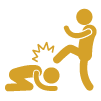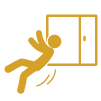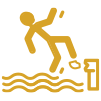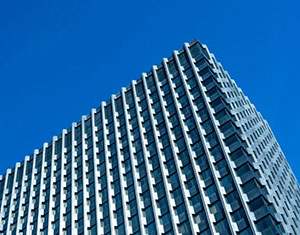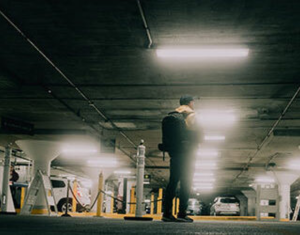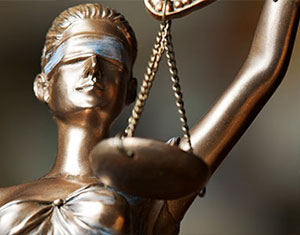An Experienced Premises Liability Attorney for Victims of Serious Injury & Wrongful Death
When people visit someone’s home, a place of business, a public area such as a park, or a government building, they don’t expect to be injured. Unfortunately, this happens all the time in the Atlanta area.
If you’re a customer or a permitted guest, the business or property owner or occupier has a legal obligation to ensure that the premises are relatively safe for everyone who visits. Business and property owners have a duty of care to prevent any hazards or dangers, including possible criminal assaults. Those who fail to protect visitors and the public against hazardous conditions are negligent, especially if someone is injured during their visit.
What Are Premises Liability Cases in Georgia?
Premises liability is the area of law that addresses injuries when someone is injured on another person’s property. At its core is the responsibility and duty of care that the owner must keep a premises reasonably safe for everyone who visits.
A property owner must also be aware of a hazard so that they have an opportunity to make repairs or at least remediate it. If someone notifies the property owner or manager of a hazardous condition and they fail to remediate it, they may be considered negligent and can be held liable for someone’s accident. Everything will depend on the facts of the case.
Reason for Being on the Property
Property owners are generally responsible for the injuries suffered by others while on their property. However, the reason for the person’s being on the property determines how much of a duty of care is required by the owner.
- Invitees – Invitees are people who have the owner’s permission to be on the property for a business reason. The owner and/or occupier has a duty to keep the premises safe and maintained and provide warnings for unsafe conditions. One example is a person who pays to access a pool at a private club.
- Licensees – Licensees are people on the property with permission for their own reasons, such as swimming at a neighbor’s pool. The owner is prohibited from causing intentional harm to a licensee.
- Trespassers – Trespassers are persons on private property without the owner’s permission is not owed a duty of care. Like the licensee, the owner cannot intentionally cause harm to a trespasser, but isn’t responsible for their injuries otherwise. The exception is a child under the “attractive nuisance” laws which are treated differently. If an owner knows about the trespassers, they are required to notify them of any hazards as they would with invitees and licensees.
Further Reading: Understanding Proximate Cause in Negligence & Premises Liability
Proving Negligence & Causation in Georgia Premises Liability Cases
If you are pursuing a premises liability lawsuit against a property owner or business in Atlanta, your claim will likely be brought under Ga. Code Ann. Sec. § 51-3-1. This section of Georgia law requires property owners and occupiers to exercise ordinary care in keeping their premises reasonably safe.
Failure to provide adequate security is an example of how this duty of care may be breached. To hold an Atlanta business or property owner legally liable under this statute, you will be required to prove the following four things:
- Duty: To start, injured victims must be able to establish that the defendant actually owed them a duty of care. Those invited onsite for the financial benefit of the property owner are owed the highest duty of care. Trespassers are owed the lowest duty of care (typically only the responsibility to avoid intentionally harming them).
- Breach: Plaintiffs are required to prove that, in some manner, the defendant failed to take proper precautions in maintaining safe premises.
- Causation: Defendants are only liable for injuries that are actually related to their negligence. Victims must be able to prove a causal link between the property owner’s negligence and their injuries. Per the impact rule, one must establish physical injuries directly caused by the defendant’s negligence before they can collect for emotional distress or trauma.
- Damages: Lastly, victims must prove the value of their damages, which is another way of saying their losses, financial and otherwise. This could be anything from medical bills to lost wages to loss of life enjoyment. Damages are often among the most contested issues in a premises liability claim. An experienced Atlanta injury attorney will be able to help you outline the full scope of your damages during negotiations and, if necessary, during trial.
Georgia law also recognizes “open and obvious.” That is, if a hazard was highly visible to everyone and you chose to walk through it or approach it, the defendant may use “open and obvious” as a defense to your claim. If so, your chances of recovering compensation are much lower. Another example is someone talking on a cell phone and not paying attention to the obvious signage and experiencing an accident.
Statute of Limitations on Premises Liability Injury Cases
Georgia has a two-year statute of limitations on filing a premises liability case, beginning with the date of your accident. If you’ve been injured, it’s important to seek medical care first. Immediately afterward, seek legal representation to make sure that your rights are protected, and you can collect compensation for your injuries.
Further Reading: Understanding Foreseeability in Negligence & Premises Liability
Compensation and Damages Recoverable in Georgia Premises Liability Injury Cases
Serious injuries on someone else’s property can be as bad as a car accident. You may need extensive medical care, or even long-term care after an accident. Fortunately, you may be able to recover some of those losses, including:
- Medical expenses, including emergency care and ongoing treatments.
- Lost wages.
- Reduced or loss of earning capacity.
- Long term disability.
- Property damage.
- Pain and suffering, including emotional injuries.
- Diminished quality of life.
If you or a loved one has been badly injured due to premises liability negligence and
would like to discuss what possible damages you could recover, contact Apolinsky & Associates, LLC, for a case evaluation.
Further Reading: What is Pain and Suffering and How Is Compensation Value Calculated?




